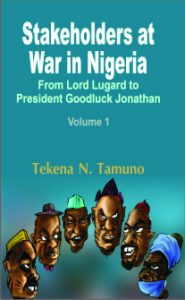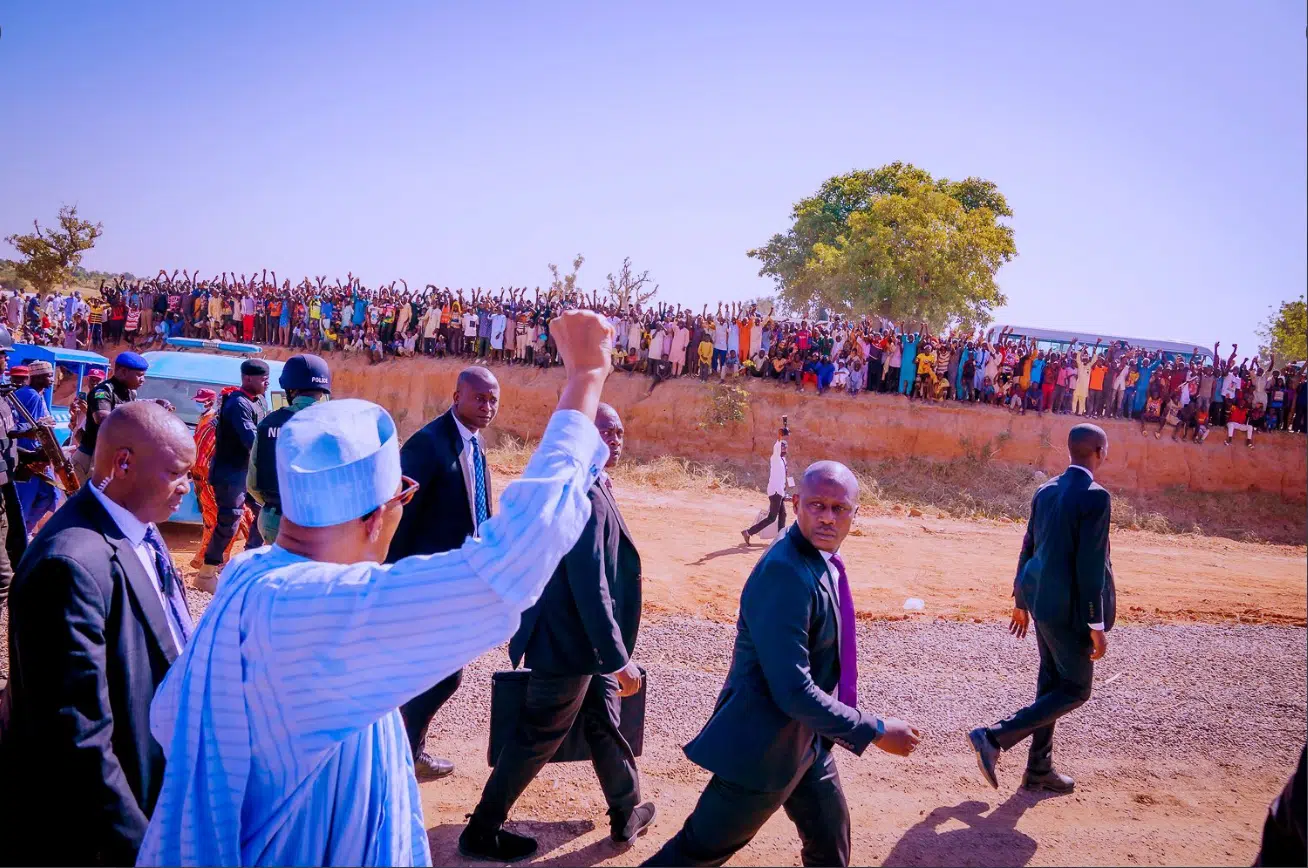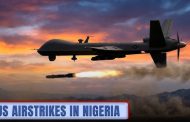By Aminu Habibu Jahun
A few months to his eight year tenure, President Muhammadu Buhari delivered an economic and geopolitical master stroke with military precision: the Kolmani Oil Project on the borders of Bauchi and Gombe states in Northeastern Nigeria. It is a geopolitically significant economic project to the North, perceived by many as the parasite just because oil was not flowing from its pores.
To each geopolitical segment in the Nation, Kolmani Oil Project elicits something peculiar. To the North, it serves as an economic equaliser as it is set to become a small scale oil producing region, and a contributor to federal oil revenues, complete with the admission of its host states into the league of oil producing states in Nigeria.

Prof Terisa Turner, author of the referential essay, “Oil and instability in Nigeria”
To Nigeria’s Texas – the Southsouth geopolitical zone and the oil revenue basket of the Nation as well as resource control insurgent enclave – its eminent position as the only goose that lays the golden eggs is upset and counterpoised to the Boko Haram insurgent geopolitical Northeast, soon to be another golden eggs laying North Dakota or New Mexico of Nigeria.
To many in the South, Kolmani is no more than a geopolitical fantasy. How could a drop of oil be found in the North? How and why should the oil deposits of the Niger Delta, even if on a small scale, be replicated elsewhere beyond the Southern states? Is this not a geological sabotage by the oil formation mechanism, to free the North from being the liability of the federal structure on account that it contributes ‘nothing’ or very little to the national till?
Kolmani is detested less for its revenue yielding prospects but for its potential geopolitical impact for the North. It is negated because it is the death knell of power shift, true federalism, virulent restructuring and resource control sub nationalism- political tools used to subdue and browbeat the North and make it kowtow to the political manipulation of the South.
Since 1946, geopolitical relations have been shaped by the regionalist ethos, which established a regional structure in which the Northern region was as large as the Western and Eastern regions combined, giving it size and population the political weight of which the West and East resisted. The changing dynamics of geopolitical relations almost isolated and marginalised the North in Nigeria.
From independence up to the ante bellum years, geopolitical engagements were competitive though also cooperative to some extent but becoming out rightly adversarial and confrontationist in Nigeria after the series of military interventions.

It is a lot about oil
1960 to 1970 were the days of competitive and violent geopolitical relations in Nigeria. They were days of regional autonomy, of retaining regionally derived revenues, ceding only a percentage to the central government, days of what today’s advocates of restructuring call true federalism. They were the days when the North , the most educationally backward region spiritedly sought not only to catch up but also to forge ahead the other regions, whilst the West and the East forged further ahead. Each region was animated by defined ideals. They were the days of decisive regional political alliances between the Zik led NCNC and the Bello led NPC; United Progressive Grand Alliance and the Nigerian National Alliance of 1964 made up of political parties across regions; between the North and the West to defend Nigeria’s unity against Biafran secession.
Despite the relative advance of the other regions over it, the North was not weighed down. There was no special aura in the North for the West and East as the most advanced regions. They were no more than regional competitors who were irritatingly ahead of the bigger region, whose attainments unlocked the Northern competitive spirit to catch up and excel.
The ascendency of oil in the Nigerian economy, the abolition of the regions, the growing centralisation of power in Lagos and later Abuja and the reproduction of power elites in the Northern states who manipulated Northern diversity for personal interests, weakened northern cohesion and unity. Despite its human and non-oil resources, the North became the pariah region, the ‘big for nothing’ giant with constituent units perpetually dependent on southern oil revenues.
Unlike the North after the creations of states in 1967 and in subsequent years, the successor states to the Western region underpinned by ethnic and cultural homogeneity retained their unity whilst the Igbo segment in the Eastern region held on to their sub regional dream. Both pursued their interests with aggressive geopolitical engagements in Nigeria.

A sprawling oil facility in the Niger Delta area that became tightly associated with corruption
The cooperative geopolitical relations between the North on one hand and the West (during the civil war) and the East ( NCNC and NPC; and NPN and NPP) on the other hand became minimal whilst they increased between the West , East and the Northern fifth columnists to isolate and marginalise the core North which generally left the region no more than a wretched halfway house.
Contemporaneous with its isolation and marginalisation, power shift, restructuring, true federalism, resource control agitations and excising the North from Nigeria, were freely and jointly canvassed to constrain the North to leverage its dense human numbers in the political arena which eventually produced the Obasanjo administration to subdue the restive true federalists, power shifters, ‘restructuralists’ and oil resources owners who overheated the polity, especially after the annulled June 12 election in Nigeria.
Out of the blue, PMB commissioned the Kolmani Oil Project on November 22nd, 2022 and upset the apple carte, sending ripples across Nigeria’s geopolitical circles. Hence Kolmani’s strategic geopolitical value to the North is worth more than railway lines and other critical infrastructure PMB failed to provide since Kolmani would remain potent until the displacement of oil resources by climate friendly alternative energies. In the long run, an unfathomable future, all of us would have been dead, according to the British economist, John Maynard Keynes.
Kolmani is thus a geopolitical and geological coup detat which would upset the balance of forces in which a forsaken region would be revitalised for strategic reengagements with other geopolitical groups on equal terms in Nigeria. The tools hitherto deployed against it ( true federalism, restructuring and resource control) would after the consolidation of the Kolmani Project serve Northern purposes whilst the fourth tool, power shift would be disengaged from them, to be determined only by its political desideratum in Nigeria .
Former president Goodluck Jonathan abandoned late Yaradua’s Seven Point Agenda and stopped the dredging of the lower Niger, became non-commital to the war against insurgency in the North East, regarding it as a Northern plot against him. And before him, former president Obasanjo decimated the Northern military cream and grounded Mallam Aminu Kano International Airport. The commissions and omissions of the two former presidents make many a northerner doubtful of the pledges of the APC presidential candidate, BAT, to uphold PMB’s agenda and ensure the continuity of projects beneficial to the North, especially the Kolmani project, the regional emancipator and the game changer in geopolitical relations in Nigeria.
Its continuity and the prevention of counter coups against it is only contingent on voting a Northern presidential candidate in the 2023 general elections, which would ensure its continuity and free it from the dog eat dog inter-regional adversary in Nigeria.
The author wrote in from Dutse, Jigawa State!





























1 Comments
Abdullah Musa
It is norma to write: Nature is kind, when circumstances which are outside our control favor us. Being human, we pass adverse judgement when we become saddled with unfavorable circumstances.
As a Muslim, I do not believe in Nature as a conscious, all powerful being. In its stead, I believe in Allah as the Supreme Being, the originator and Sustainer of the universe.
Why make the religious reference? Because I am tempted to write that Nigerians are unfortunate for being trapped in a nation that is not their creation.
The mildest consequence was the civil war. The gravest consequence being the internal hemorrhage that has been going on since then.
Oil from Niger Delta does not belong to Nigeria according to natives. It belongs to them. And who are they? They are members of their respective tribes, they do not intend to be Nigerians, since being Nigerians entails sharing oil wealth with others.
Is Kolmani oil going to be a Nigerian oil? Who knows?
Managing diversity could have meant exploiting the talents of those upon whom Nigeria was imposed.
But that seems to be a mirage. Even if all geopolitical zones are having equal resources, ethnicity will compel some to believe they are better off as a zone exclusive to their ethnic group alone.
Kolmani oil instead of unifying the country might end up being a weapon in the hands of secessionists: now that you have oil (as Northerners) Why not let us go our separate ways, you with your Boko Haram and hordes of beggars, while we go with our cultists, drugs peddlers, baby factories etc.
In the creation of Nigeria, has Allah tasked us with a burden beyond our ability?
The Qur’an says ‘no’, that Allah does not burden a soul with much more than it can bear.
Somebody gifted you an umbrella. In your ‘wisdom’ you punctured holes into it for better ventilation. When the rains come and you get drenched, whose fault?
Nigeria? Perception is the real problem.